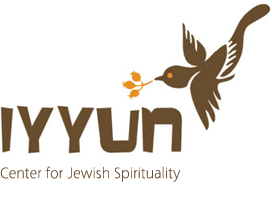The reading of the Torah is called Kriat HaTorah, the word keriah meaning "to call out," as in one friend calling out to another. When we read the Torah, we call out to God and, thus, bring down the same energy that gives power to the verses we are reading.
Read more...The dramatic story of Chana captures the essential nature of prayer on Rosh Hashanah. In fact, according to some opinions, it was on Rosh Hashanah that Chana first prayed for a child.
As the story begins, we learn that Chana is bereft of children, and in her agony, she comes to Shiloh to pray for a child in the Holy Sanctuary there. As she is praying, Eli, the High Priest, speculates that she is drunk. In response to Eli’s accusation, she answers, “No, my lord … I have been pouring out my soul before God.”
Eli, the High Priest, whose life was detached from physicality, revolving as it did around the spiritual work of the Holy Sanctuary, thought that to ask for physical things (children included) in such a spiritual place, in front of God, was unbefitting. For him, there existed a clear divide between the physical and the spiritual, and this is why he thought her drunk—drunk with her own selfish needs, completely self-consumed.
She responded, “I have been pouring my soul out in front of God,” saying in effect, “Know that the reason I ask for children is not for personal aggrandizement or fulfillment, rather it is because my deepest self, my soul, is yearning to fulfill its mission and Divine purpose.”
We assume that when we are hungry for food, it is a mere bodily desire, when in truth, from a deeper level of reality, it is our soul that is in a state of want and desire. When we don’t nourish it, it languishes. As the Psalm (107:5) states: “Hungry as well as thirsty my soul withers within.”
Every individual has a particular soul task to gather Divine sparks of energy, which are scattered throughout creation and which are sometimes revealed but most often deeply concealed. Each soul feels an affinity for particular sparks which it must elevate and release. Some sparks are elevated and released via the individual’s involvement (positive attractions), while others are elevated and released via the individual’s resistance and restraint (negative attractions). The reason some people innately like certain foods while others dislike them, or some people are attracted to certain occupations and not to others, is because of their soul connection to particular sparks. Thus, our innate likes and dislikes, our inclinations and proclivities, are indicative of our unique soul task.
This is the meaning behind the prayer of Chana—a heartfelt soul prayer, emanating from the depths of her being, expressing her yearning to fulfill her ultimate soul mission, which is part of a Divinely orchestrated plan. This, too, is the real meaning of the prayers of Rosh Hashanah.
Perhaps on a surface level, it may appear that our petitions for health, wealth and physical well being are ego-oriented, but the truth is these are expressions of our deepest self, of our soul. To ensure that the Creator’s kingship infuses the entire creation, we ask for everything we need or think we need of the physical realm so that we can use it for a Divine and noble purpose, and so that this physical realm should express and become a dwelling place for the deepest essence of the Creator.







